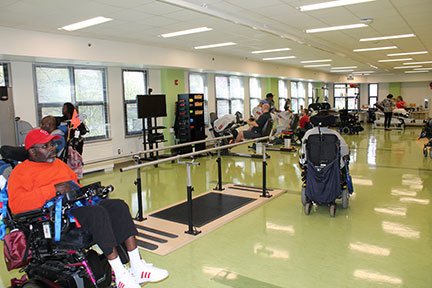How Can Drug Rehab Facilities Cater to Different Types of Addictions?

Drug rehab facilities play a pivotal role in the journey toward recovery for many individuals struggling with addiction. Given the complexity and diversity of substance use disorders, these facilities must offer a broad spectrum of services to effectively address the varied needs of their clientele. From alcohol dependence to opioid addiction, the approach to treatment can significantly differ, highlighting the importance of personalized care plans.
Tailoring Treatment to Individual Needs
The effectiveness of a rehab program greatly depends on its ability to provide personalized care. For instance, outpatient treatment in Fort Lauderdale may be suitable for those with mild addiction. Still, it may not suffice for someone with a severe, long-standing opioid addiction, who might require a more intensive inpatient program. Tailoring treatment involves a comprehensive assessment of the individual’s addiction severity, substance type, and personal circumstances.
Comprehensive Assessment and Diagnosis
The first step in catering to different types of addictions is a thorough assessment and diagnosis. This process helps identify not only the type of substance abuse but also any co-occurring mental health disorders, physical health issues, and social factors influencing the addiction. Understanding the full scope of an individual’s situation enables rehab facilities to design a more effective, holistic treatment plan.
Evidence-Based Treatment Modalities
Adopting evidence-based treatment modalities ensures that rehab facilities offer the most effective care for various types of addiction. This includes a combination of medication-assisted treatment (MAT), cognitive-behavioral therapy (CBT), motivational interviewing (MI), and other therapies proven to be effective in treating substance use disorders.
Individual and Group Therapy Sessions
Both individual and group therapy sessions play crucial roles in treating different types of addictions. Individual therapy allows for personalized attention and tailored treatment strategies, while group therapy provides peer support and the opportunity to learn from others’ experiences. The balance between these therapy types can be adjusted based on the addiction being treated and the individual’s preferences.
Family Involvement in Treatment
Involving family in the treatment process can significantly enhance the effectiveness of rehab for various types of addiction. Family therapy sessions can help repair relationships damaged by addiction, provide additional support for the individual, and educate family members on how to best support their loved one’s recovery journey.
Specialized Programs for Specific Addictions in rehab facilities
Some rehab facilities offer specialized programs designed to address specific types of addictions. For example, certain centers may have programs dedicated to opioid addiction, incorporating MAT with counseling and behavioral therapies tailored to the nuances of opioid dependency. These specialized programs can offer more focused and effective treatment for individuals with particular substance use disorders.
Continuum of Care
Providing a continuum of care, from detoxification and acute treatment to aftercare and relapse prevention, is essential for effectively catering to different types of addictions. This approach ensures that individuals receive ongoing support and treatment services tailored to their changing needs throughout recovery.
Cultural Competency and Sensitivity
Recognizing and respecting cultural differences in the treatment of addiction is crucial. Rehab facilities that embrace cultural competency can offer a more welcoming and supportive environment for individuals from diverse backgrounds, potentially improving treatment outcomes.
Adapting to New Treatment Advances
Finally, staying informed about and adapting to new advances in addiction treatment allows rehab facilities to continuously improve their ability to cater to different types of addictions. This includes adopting new medications, therapeutic approaches, and technologies as they are proven effective.
“If you or a loved one is struggling with addiction, Legacy Healing Center is here to help. Our Fort Lauderdale rehab for drug and alcohol addiction provides personalized addiction treatments to address your unique needs. Our team of experts is dedicated to helping you or your loved one achieve lasting recovery.”
Drug rehab facilities face the challenging task of catering to a wide range of addictions, each with its complexities and nuances. By offering personalized, evidence-based treatment plans, involving family in the recovery process, and maintaining a commitment to cultural competency and continuous improvement, rehab centers can provide effective support for individuals across the spectrum of substance use disorders. The key to success lies in understanding the unique needs of each person seeking help and adapting treatment approaches to foster long-term recovery and well-being.

